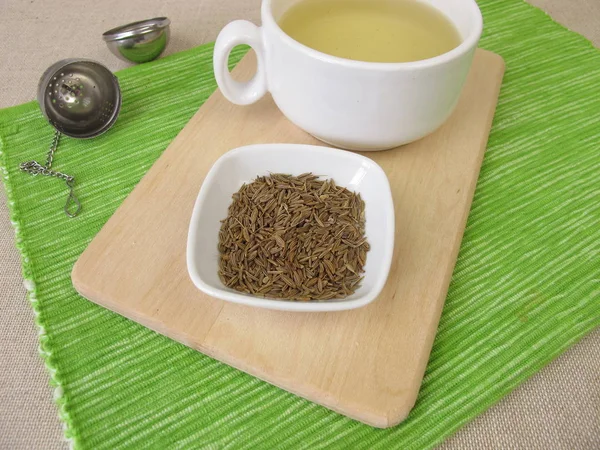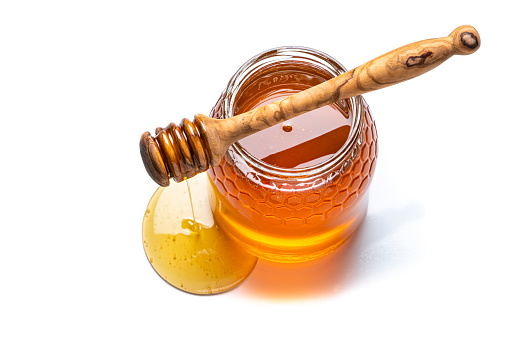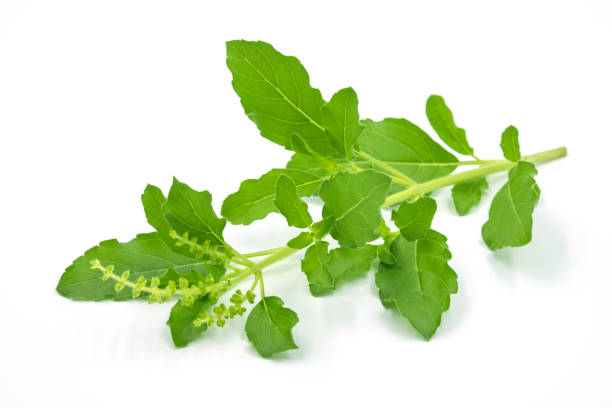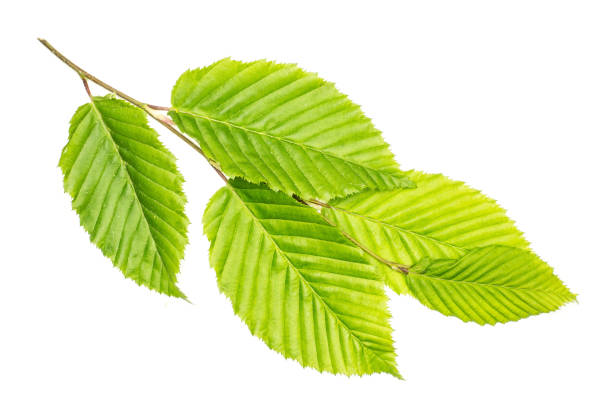Pleurisy, also known as pleuritis, is a condition characterized by inflammation of the pleura, the thin membranes that line the chest cavity and surround the lungs. It can be a painful and discomforting experience, often accompanied by chest pain, difficulty breathing, and coughing. While medical treatments are available, many individuals prefer exploring natural alternatives to alleviate their symptoms and promote overall healing.
In this article, we will explore some natural treatment options for pleurisy.
Natural Treatment for Pleurisy: Managing Symptoms Without Medications:
While medications are often prescribed to alleviate symptoms, natural remedies can also play a significant role in managing pleurisy without solely relying on drugs.
Ginger and turmeric, commonly used in traditional medicine, contain active compounds that possess anti-inflammatory and pain-reducing properties. Adding ginger and turmeric to your meals or consuming them in the form of teas or supplements may aid in alleviating discomfort.
Garlic, known for its numerous health benefits, offers natural anti-inflammatory properties that can help reduce inflammation in the lungs. Incorporating garlic into your diet or taking garlic supplements may provide some relief.
Eucalyptus oil and mustard oil are known for their anti-inflammatory and pain-relieving properties. Gently massaging these oils onto the chest area can help soothe the inflammation and ease the pain associated with pleurisy.
Fenugreek seeds, often used in herbal medicine, have been found to have anti-inflammatory effects. Soaking fenugreek seeds in water overnight and consuming the water the next morning may help alleviate chest pain.
Licorice, another herbal remedy, has been used for centuries to treat respiratory conditions. It possesses anti-inflammatory properties that can assist in reducing inflammation in the lining of the lungs. Consuming licorice tea or licorice supplements may provide some relief from pleurisy symptoms.
Rest is crucial in the recovery process from pleurisy. Giving your body ample time to heal and avoiding strenuous activities can aid in reducing inflammation and promoting a speedy recovery.
Hot and cold compresses can also be beneficial in managing pleurisy symptoms. Applying a hot compress to the affected area can help relax muscles and relieve pain, while a cold compress can help reduce inflammation and numb the area.
While these natural remedies can provide relief, it is vital to consult a healthcare professional for an accurate diagnosis and treatment plan. Natural remedies should be used in conjunction with doctor-prescribed medications and treatments to ensure comprehensive care.
1. Ginger
Ginger, a commonly used ingredient in kitchens worldwide, possesses remarkable medicinal properties that can aid in the treatment of pleurisy. Pleurisy, characterized by painful inflammation of the pleura, the membrane lining the chest cavity and enclosing the lungs, can be effectively alleviated with the help of ginger.
One of the key benefits of ginger in pleurisy treatment is its anti-inflammatory properties. Ginger has been found to reduce swelling and alleviate pain, providing much-needed relief to individuals suffering from pleurisy. Additionally, ginger supports the immune system, providing a boost to the body’s natural defenses.
Another advantage of ginger is its natural expectorant properties. Pleurisy can lead to the accumulation of mucus and phlegm in the chest, causing discomfort and making breathing difficult. Ginger acts as an expectorant, facilitating the expulsion of mucus and phlegm, thereby promoting clearer airways.
Ginger can be incorporated into the diet and consumed in various forms. Ginger tea is a popular and soothing option—simply grate or finely chop fresh ginger and steep it in hot water for around 10 minutes. This preparation method allows the beneficial compounds in ginger to infuse into the tea, providing both taste and therapeutic benefits. Additionally, ginger can be added to soups and curries to enhance flavor and increase nutritional value.
It is important to note that while ginger is generally considered safe, it may interact with certain medications or have contraindications for individuals with specific health conditions. Therefore, it is advisable to consult with a healthcare professional before incorporating ginger into your pleurisy treatment. They can provide personalized guidance and ensure that ginger is suitable for your specific circumstances, maximizing its benefits and ensuring your safety.
2. Garlic

The antibacterial and antiviral properties of garlic are widely acknowledged, making it a popular preventative measure against various illnesses and infections. However, it is important to note that garlic can also be utilized as a treatment for pleurisy, an inflammation of the pleura, which is the membrane that lines the chest cavity and encloses the lungs. Recent studies have demonstrated that garlic can be an exceptionally effective remedy for pleurisy due to its ability to deliver potent anti-inflammatory and immune-boosting compounds to the affected area, as well as its capacity to combat the bacteria that can cause chest infections. Healthcare professionals recommend consuming a clove of garlic on an empty stomach each day for optimal outcomes. However, it is imperative to consult with a physician beforehand to ensure that it does not interfere with any pre-existing medications.
3. Honey
For centuries, honey has been utilized as a traditional remedy for pleurisy, and recent studies have confirmed its efficacy. Honey possesses potent anti-inflammatory and antimicrobial properties, making it an ideal treatment for pleurisy and other lung-related ailments.
The anti-inflammatory properties of honey are attributed to its ability to reduce levels of inflammatory mediators such as TNF- and COX-2, as well as prostaglandin E2, a lipid mediator involved in inflammatory pain. Furthermore, honey’s antimicrobial properties make it a powerful tool for combating pathogens that can cause lung infections like pneumonia.
Honey has been proven to be a safe and effective option for treating pleurisy and other lung-related conditions, and its traditional use as a remedy for pleurisy dates back centuries. However, it is crucial to consult with your doctor before using honey to treat pleurisy to ensure that it is the appropriate choice for you.
4. Eucalyptus:
Eucalyptus, renowned for its medicinal properties, has gained popularity as a treatment for inflammation and pain. Scientific research suggests that the compounds found in eucalyptus can effectively reduce these symptoms, making it a potential remedy for pleurisy.
One common method of utilizing eucalyptus for pleurisy relief is through inhalation. By adding a few drops of eucalyptus essential oil to a hot bath or towel and inhaling the vapors, individuals may experience a reduction in inflammation and pain associated with pleurisy. When inhaled, the compounds in eucalyptus are believed to work by blocking pro-inflammatory mediators, such as cytokines and prostaglandins, leading to a decrease in inflammation.
In addition to its anti-inflammatory effects, eucalyptus boasts antimicrobial properties. This attribute is particularly beneficial in reducing the risk of lung infections, including pneumonia, which can further complicate pleurisy. By incorporating eucalyptus into a pleurisy treatment plan, individuals may not only experience relief from inflammation and pain but also enhance their respiratory health.
While eucalyptus is generally considered safe and effective for pleurisy and other lung-related conditions, it is always advisable to consult with a healthcare professional before trying any new treatment. They can provide personalized guidance and ensure that eucalyptus is suitable for your specific needs and circumstances. This precaution is especially important if you have underlying health conditions or are currently taking medications, as interactions may occur. By seeking professional advice, you can make informed decisions regarding the use of eucalyptus as part of your pleurisy treatment.
5. Licorice
Licorice, a widely recognized herb in traditional medicine, has long been utilized as a remedy for pleurisy and other respiratory conditions. This herb contains a range of anti-inflammatory compounds that contribute to its potential effectiveness in reducing pain and inflammation associated with pleurisy. These compounds work by blocking pro-inflammatory mediators such as cytokines and prostaglandins, leading to a reduction in inflammation and pain.
There are various ways to incorporate licorice into a pleurisy treatment regimen. It can be taken as a dietary supplement or added to herbal teas. Licorice has a naturally pleasant taste that can be enhanced by combining it with other herbs and spices, resulting in a flavorful and soothing tea. By incorporating licorice into a daily routine, individuals with pleurisy can potentially benefit from its anti-inflammatory properties.
In addition to its anti-inflammatory effects, licorice also possesses antimicrobial properties. This attribute is particularly valuable in reducing the risk of lung infections, such as pneumonia, which can further complicate pleurisy. By incorporating licorice into a pleurisy treatment plan, individuals may gain not only anti-inflammatory benefits but also protection against potential respiratory infections.
However, it is important to note that licorice should be used with caution and under the guidance of a healthcare professional. Excessive or prolonged use of licorice can lead to potential side effects, such as high blood pressure and imbalances in electrolytes. It is recommended to consult with a healthcare provider to determine the appropriate dosage and duration of licorice supplementation for pleurisy treatment.
6. Cayenne Pepper:
In the realm of pleurisy treatment, where conventional methods prevail, an increasing interest has emerged in natural remedies. Among these alternatives, cayenne pepper stands out for its reputed anti-inflammatory and pain-relieving properties. This blog post aims to delve into the potential of cayenne pepper as a natural treatment for pleurisy.
The active compound found in cayenne pepper, capsaicin, is responsible for its characteristic heat. Extensive research has been conducted on capsaicin, revealing its anti-inflammatory properties and its potential for pain relief. This article will elucidate the mechanisms through which capsaicin reduces inflammation and potentially alleviates pleurisy symptoms.
The potent anti-inflammatory properties of cayenne pepper have been demonstrated, offering promise in mitigating the inflammation associated with pleurisy. In this regard, we will explore the scientific foundations underlying these properties and how cayenne pepper can potentially facilitate the healing process.
One mechanism through which cayenne pepper exerts its effects is by inhibiting the release of substance P, a neurotransmitter responsible for transmitting pain signals. The application of cayenne pepper topically or its consumption may offer relief from pleurisy-related pain. We will delve into the ways in which cayenne pepper can be utilized and its potential benefits.
However, it is crucial to exercise caution when considering cayenne pepper as a treatment option. We will outline the necessary precautions to be taken, potential interactions with medications, and the importance of consulting a healthcare professional before incorporating cayenne pepper into your pleurisy treatment regimen.
7. Tulsi – The Therapeutic Potential of Tulsi for Pleurisy Relief
Tulsi, also known as holy basil, holds a revered place in Indian traditional medicine due to its remarkable therapeutic properties. For individuals suffering from pleurisy, this herbal remedy may offer potential benefits. Animal studies have indicated that tulsi possesses potent analgesic and anti-inflammatory effects. Additionally, it functions as a COX-2 inhibitor, similar to certain nonsteroidal anti-inflammatory drugs (NSAIDs). Tulsi has demonstrated the ability to inhibit bacteria that could contribute to chest infections, making it a valuable resource for respiratory health. Incorporating fresh tulsi leaves into your diet or preparing a cup of invigorating tulsi tea by steeping the dried leaf in hot water are both effective ways to harness its healing potential.
8. Drink Caraway Tea

Caraway seeds have been highly regarded for their therapeutic properties in the treatment of pleurisy for centuries, owing to their distinct aromatic flavor. Carvone, a key component found in caraway seeds, is known for its potent anti-inflammatory properties. It has been demonstrated to effectively reduce the biosynthesis of prostaglandins, which are compounds involved in the inflammatory response.
One of the notable benefits of caraway seeds is their ability to alleviate chest pain associated with pleurisy. Animal studies have indicated that caraway acts as a natural painkiller, offering relief in cases of pleuritic pain. This natural remedy can be easily incorporated into a daily routine by preparing a cup of caraway tea. Simply steeping approximately 1/4 to 1/2 teaspoon of dried and powdered caraway seed in hot water creates a soothing infusion that can provide relief and promote healing. The warm and calming properties of caraway tea can help alleviate discomfort and inflammation associated with pleurisy, offering a natural and gentle approach to managing symptoms.
9. Try Slippery Elm
Herbalists often recommend slippery elm as a natural remedy for pleurisy. Not only is it believed to have a soothing effect on the chest, but it is also considered helpful in managing chest infections. While research has shown that slippery elm can provide relief for sore throats, its specific mechanism of action and effectiveness in treating pleurisy remain unclear. However, for individuals with pleurisy linked to a respiratory infection, incorporating slippery elm into their treatment regimen may offer some benefits. To harness the potential healing properties of slippery elm, one can create an infusion by steeping it in boiling water, creating a soothing beverage that may provide relief and support respiratory health.



